It’s easy to find beautiful places here in Europe, outside of the desert, even in our damp winter. We stumbled upon a good accommodation offer in Ghent, one of the prettiest Belgian cities. I’ve been in Ghent before, but only short time so I couldn’t see much.
If the dear reader were a swan, they could see the city like this:

This is the Leie river (French: Lys), which crosses the city centre.
Ghent was largely saved from bombings during the World War II, so its streets are full of history. The right bank of Leie is called Graslei. It’s a street with quite a few historical buildings, most of which host restaurants:

On the left bank there’s Korenlei, whose main attraction seems to be this dreamy girl in Santa Claus cap, also inviting you to a restaurant:

One of the evenings loitering youth tried to nick the cap, but they were immediately scared off by the restaurant’s owner.
The view from the Sint-Michielsbrug, St Michael’s Bridge is similar:


The good thing about Ghent is that all three most famous towers (Saint Bavo Cathedral, the belfry and Saint Nicholas’ Church) are on the same street, within a stone’s throw from each other:

Saint Bavo Cathedral, 89 m (292’) high, is all covered by scaffolding until 2018:
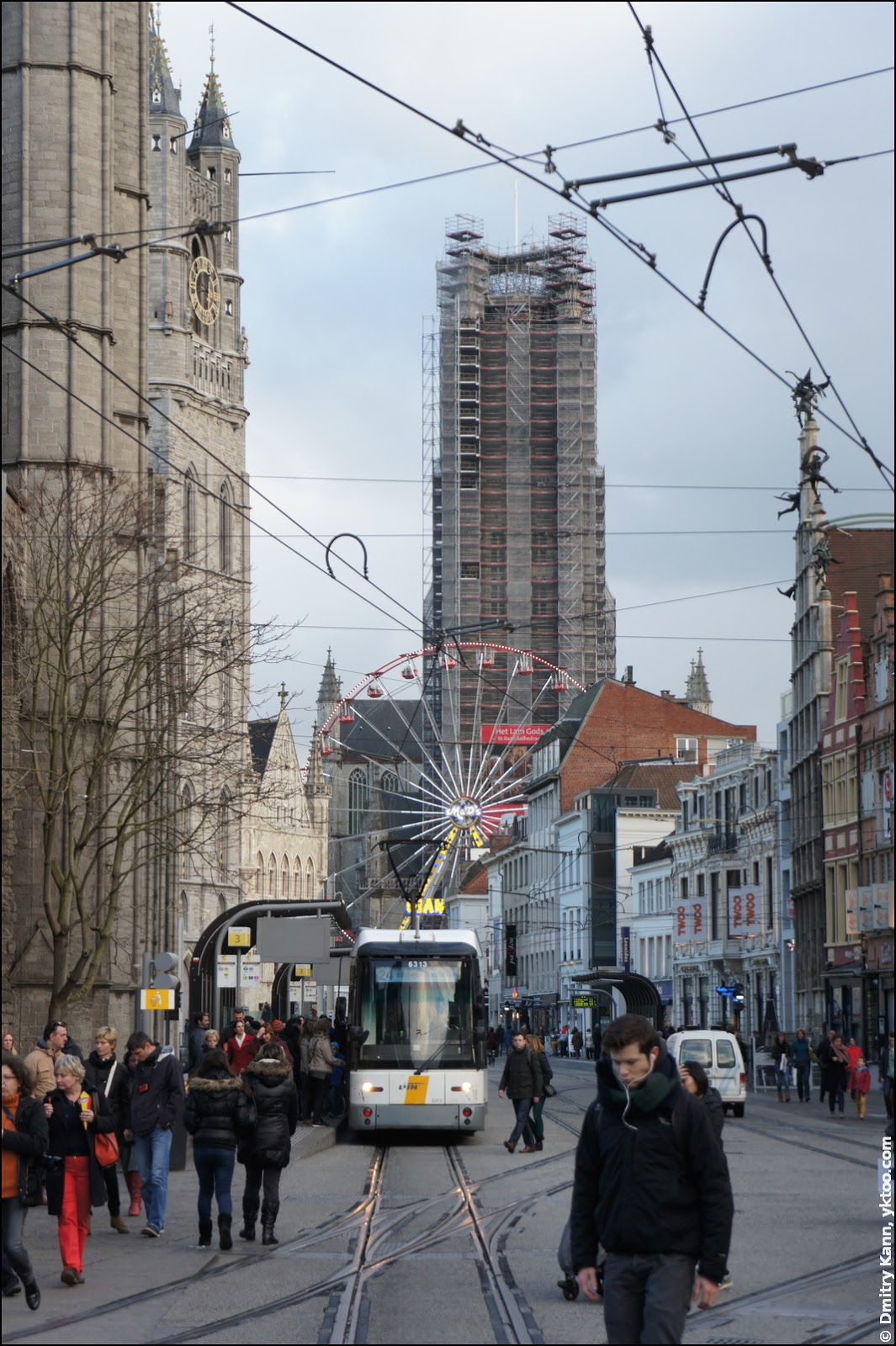
Since the appearance of Saint Bavo’s cannot be spoiled any further, the city mounted a Ferris wheel in front of it:

In return you get a perfect view on the nearby belfry from this “Giant Wheel”. For five euros you can enjoy three turns of the wheel.
The belfry is 91 metres (299’) high and hence a bit shorter than the tower of Amersfoort (98 m or 322’):
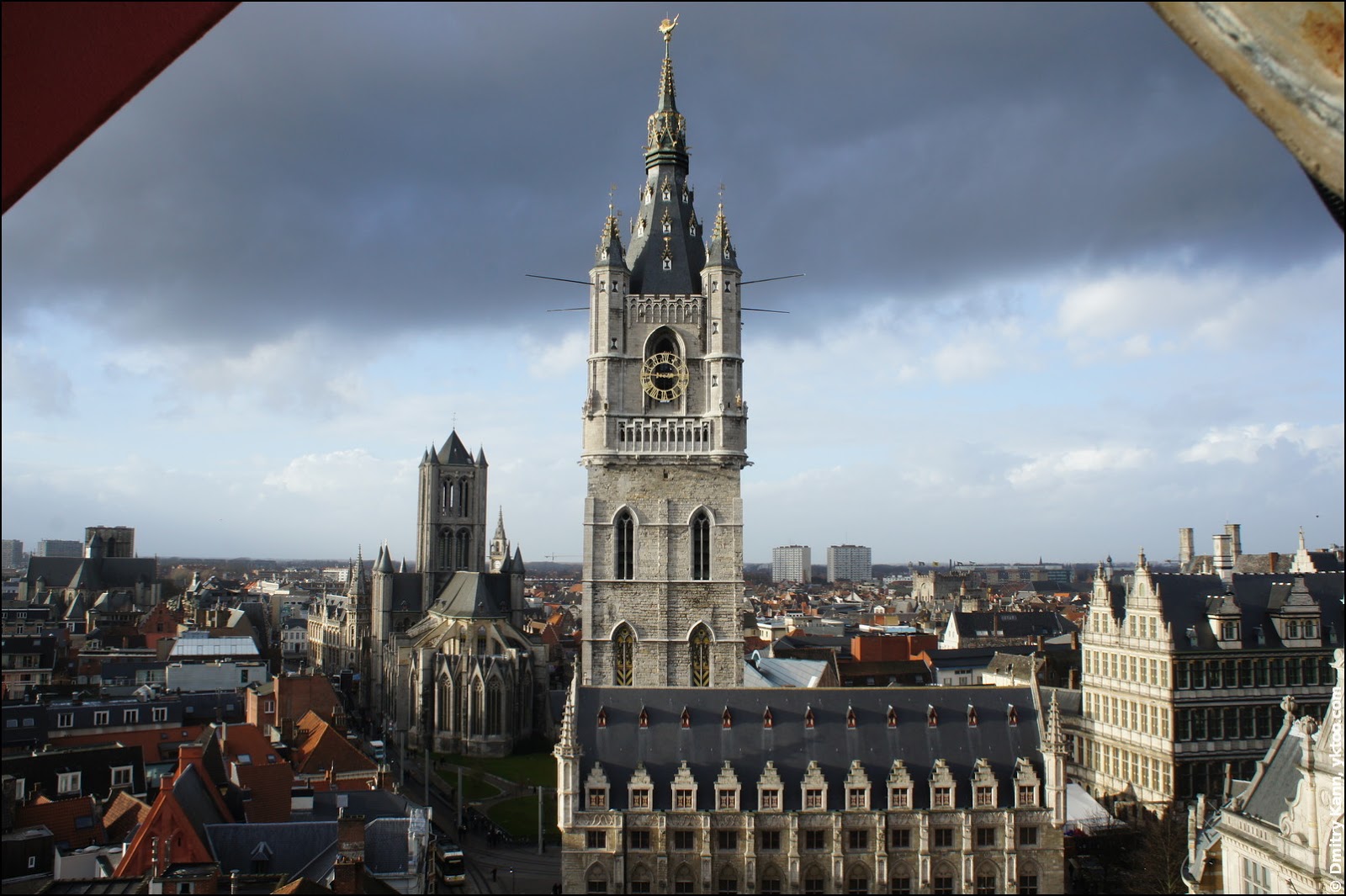
Eighty metres further there’s Saint Nicholas’ Church, the third attraction of the street:

Before the belfry there’s a Christmas market, where you can buy mulled wine, cheese, sausages, clothes, bijoux etc.:
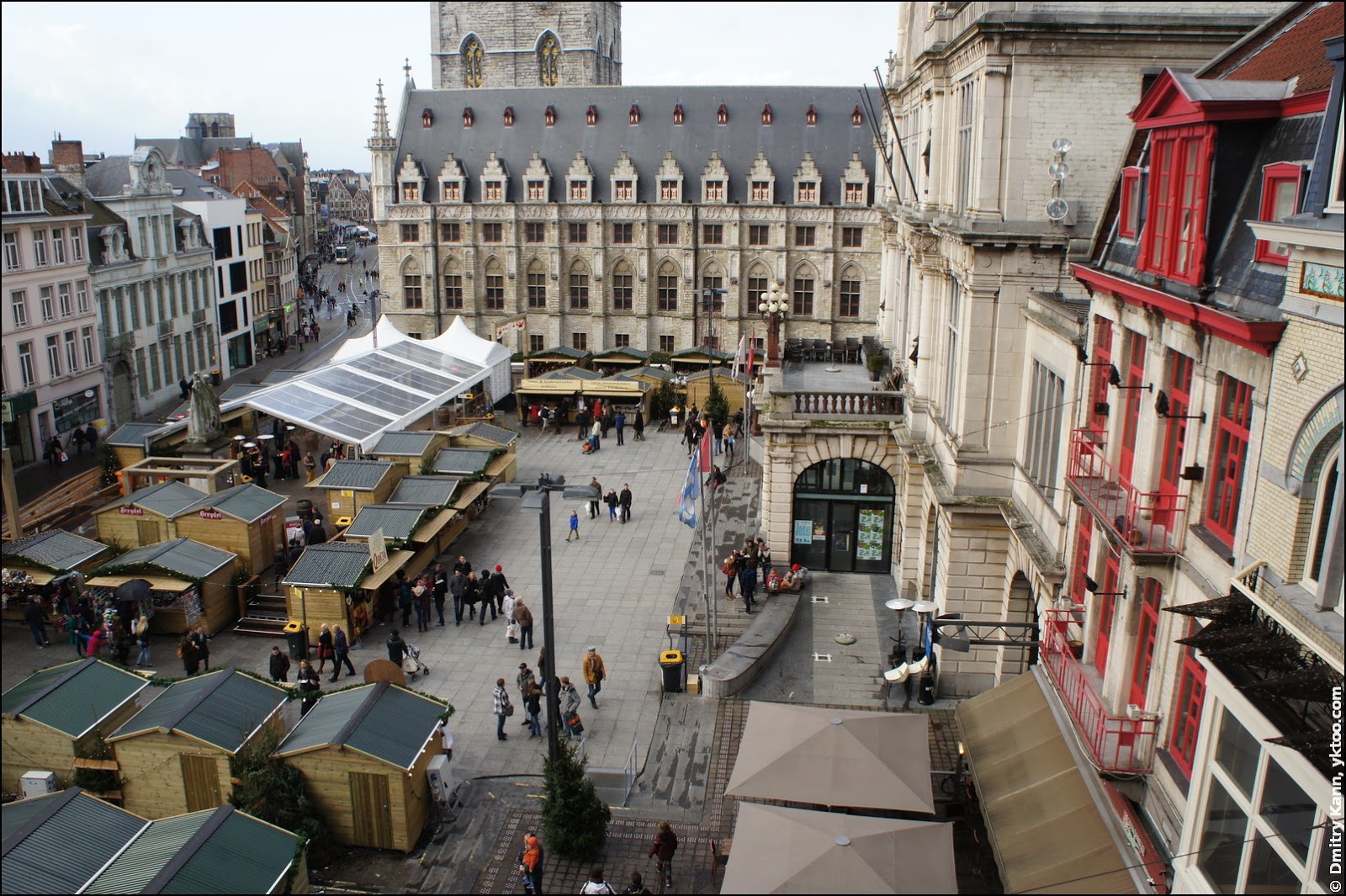
There are very few new buildings in the city centre.

On the square between the belfry and the church (Emile Braunplein) is a slanting structure called Stadshal. It is an awning, a steel skeleton encased in the endangered timber of Afrormosia. The construction has only been completed recently, in 2012.

The encasing also features 1600 tiny windows that “deliver a dynamic incidence of light”.
During the holiday period there’s a skating rink under the awning. It has to be artificially cooled as air temperature is about +10° C (50° F).

The most bizarre is the combination of the ancient and the modern. Here’s an electronic public transport time-table with the backdrop of Saint Nicholas’ Church:

More peculiarities:


North of Graslei/Korenlei, where the river forks, is another famous attraction of Ghent, the Gravensteen castle, hardly changed since my last visit.
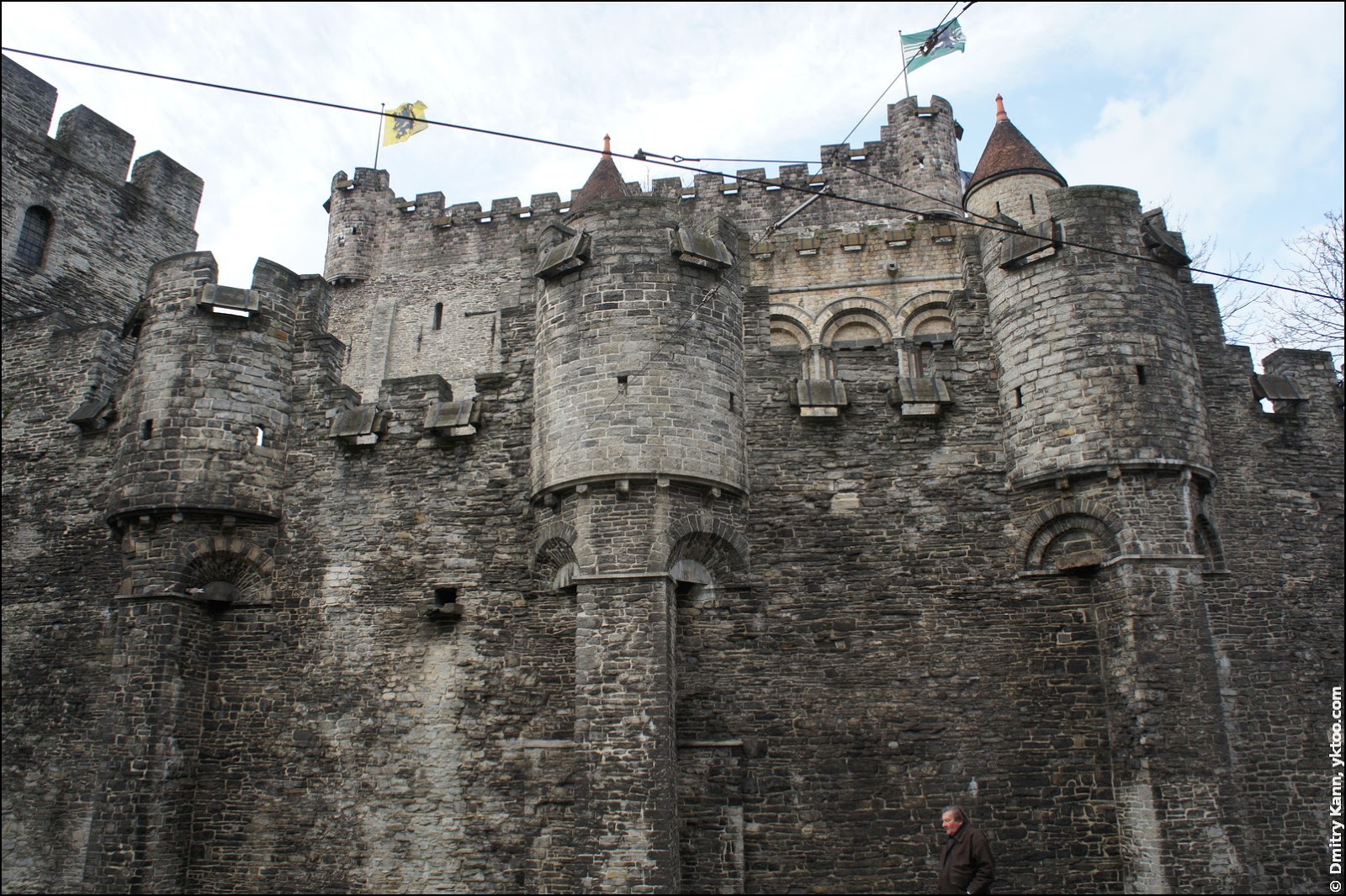
Next to it there’s one of the oldest markets in the city, De Oude Vismijn (1689), nowadays converted into a bar:

And another market that has gone through the vicissitudes of fortunes, Het Groot Vleeshuis (lit. The Big Meat House). Its original purpose was the centralisation of meat sale, which could facilitate state control. Even in medieval Belgium attention was paid to quality of products, and home meat trade was forbidden. Later in 1920 it became a marketplace for vegetables and fruits, and in 1960s a fish-market. Since 2000 it hosts the Promotion Centre for Regional Eastern-Flemish Products (Promotiecentrum voor Oost-Vlaamse streekproducten):

There’s a lot of old houses along the river in various conditions.
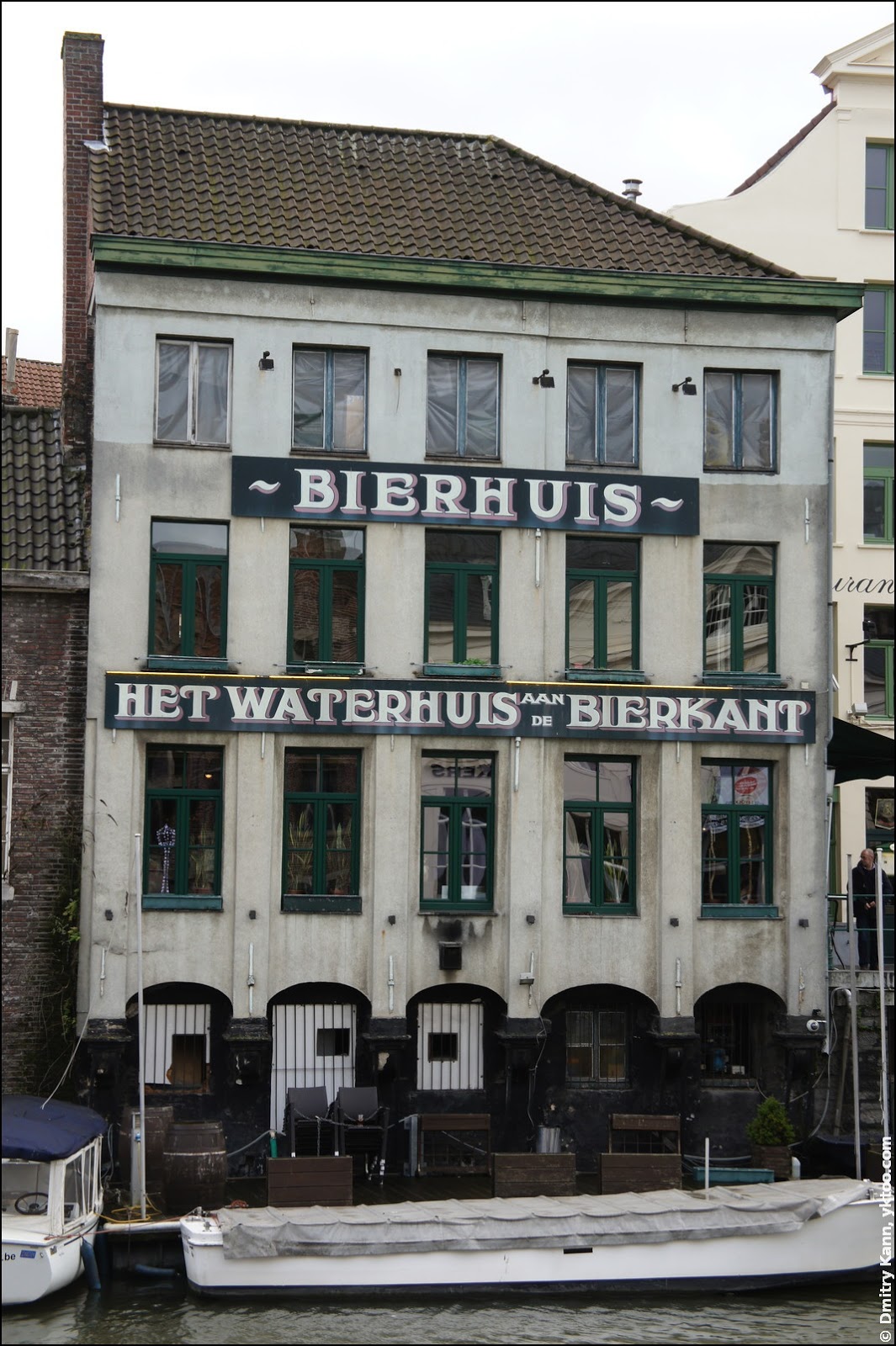
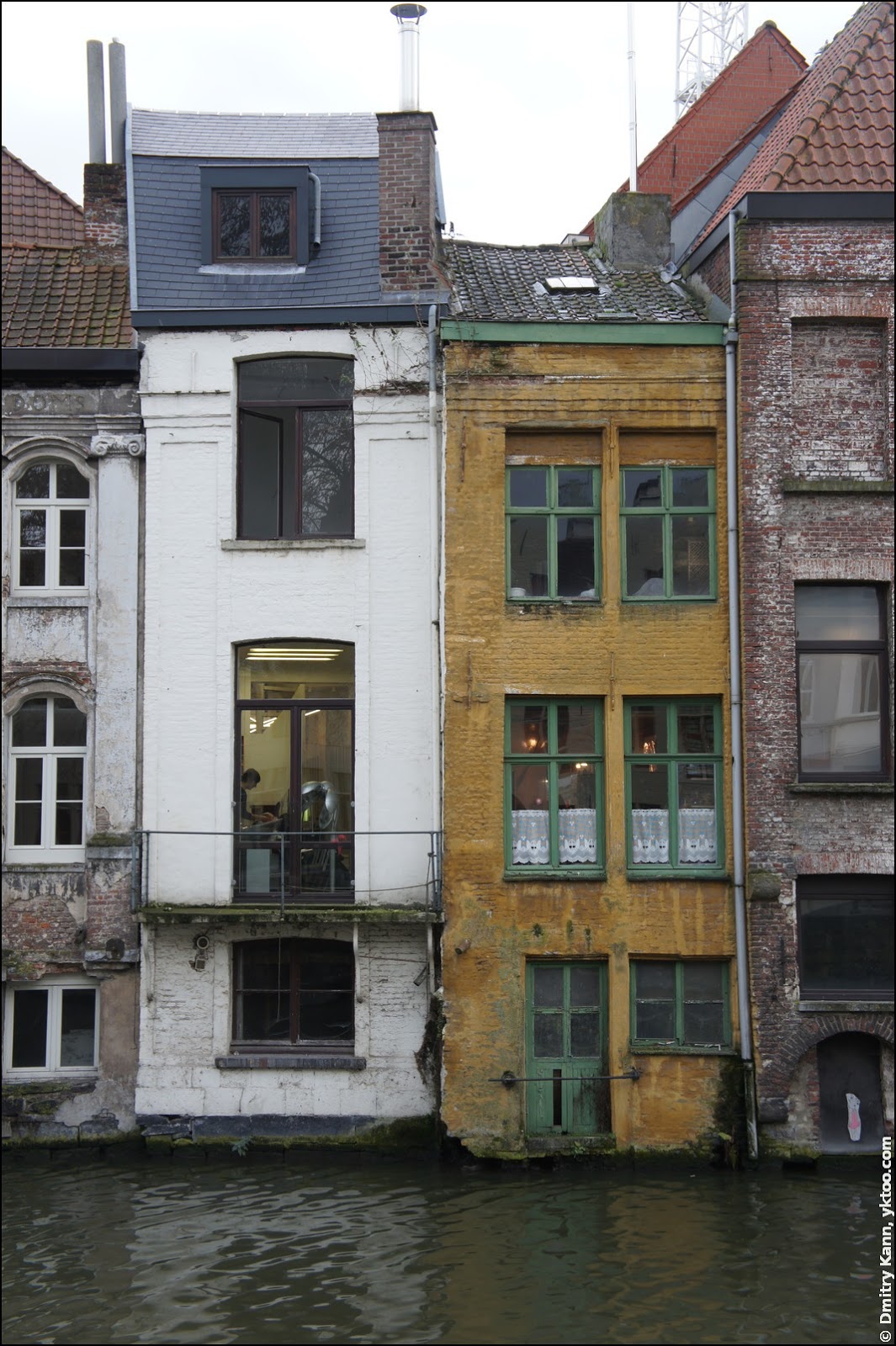

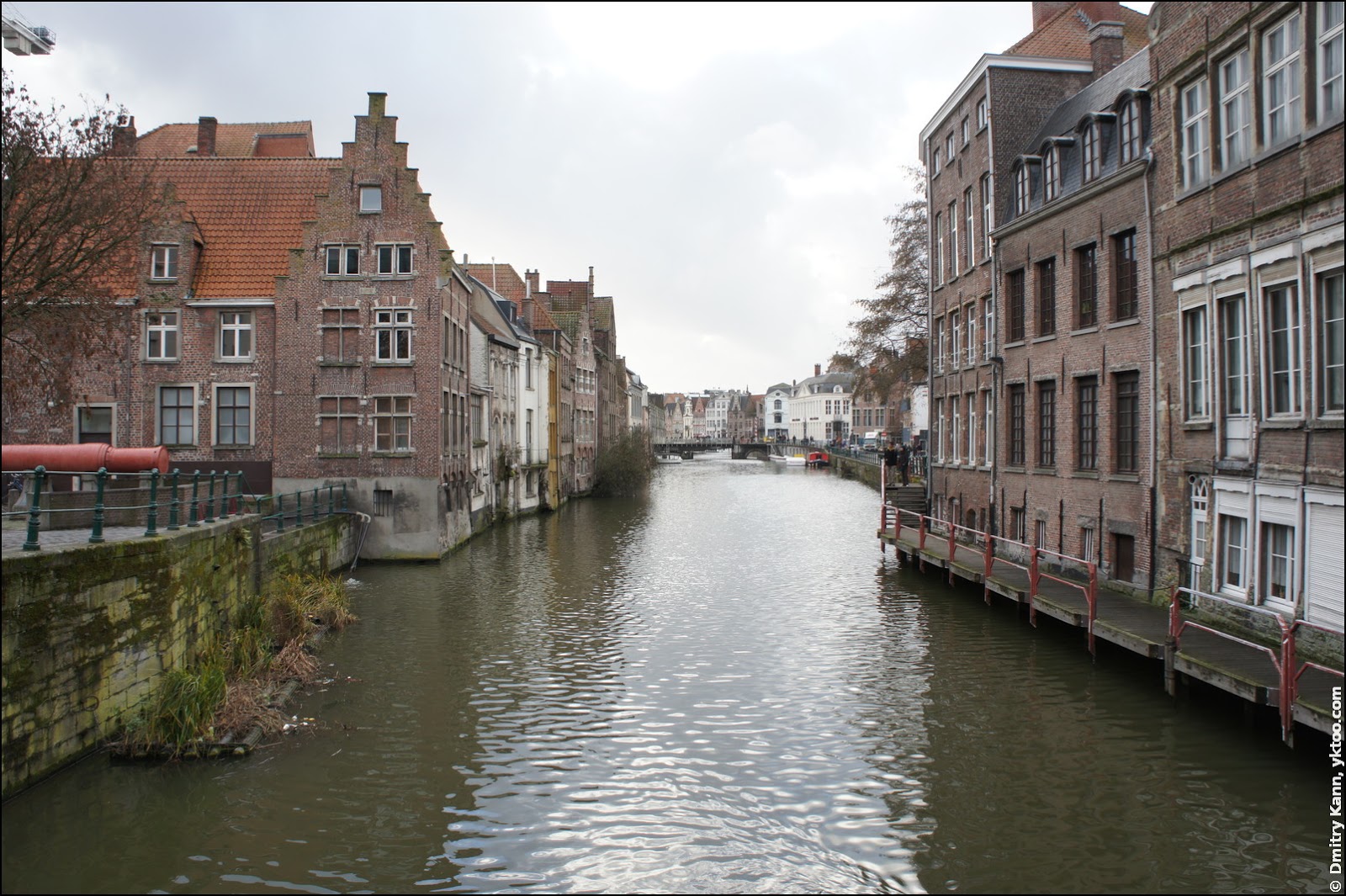
A funny artefact of the riverbank, a 12.5-ton Big Canon (Groot Kanon). It’s been here for more than four hundred years, though it’s never fired a shot, and it’s commonly known as Dulle Griet, Mad Meg:

If you like hobbits, this place is for rent:
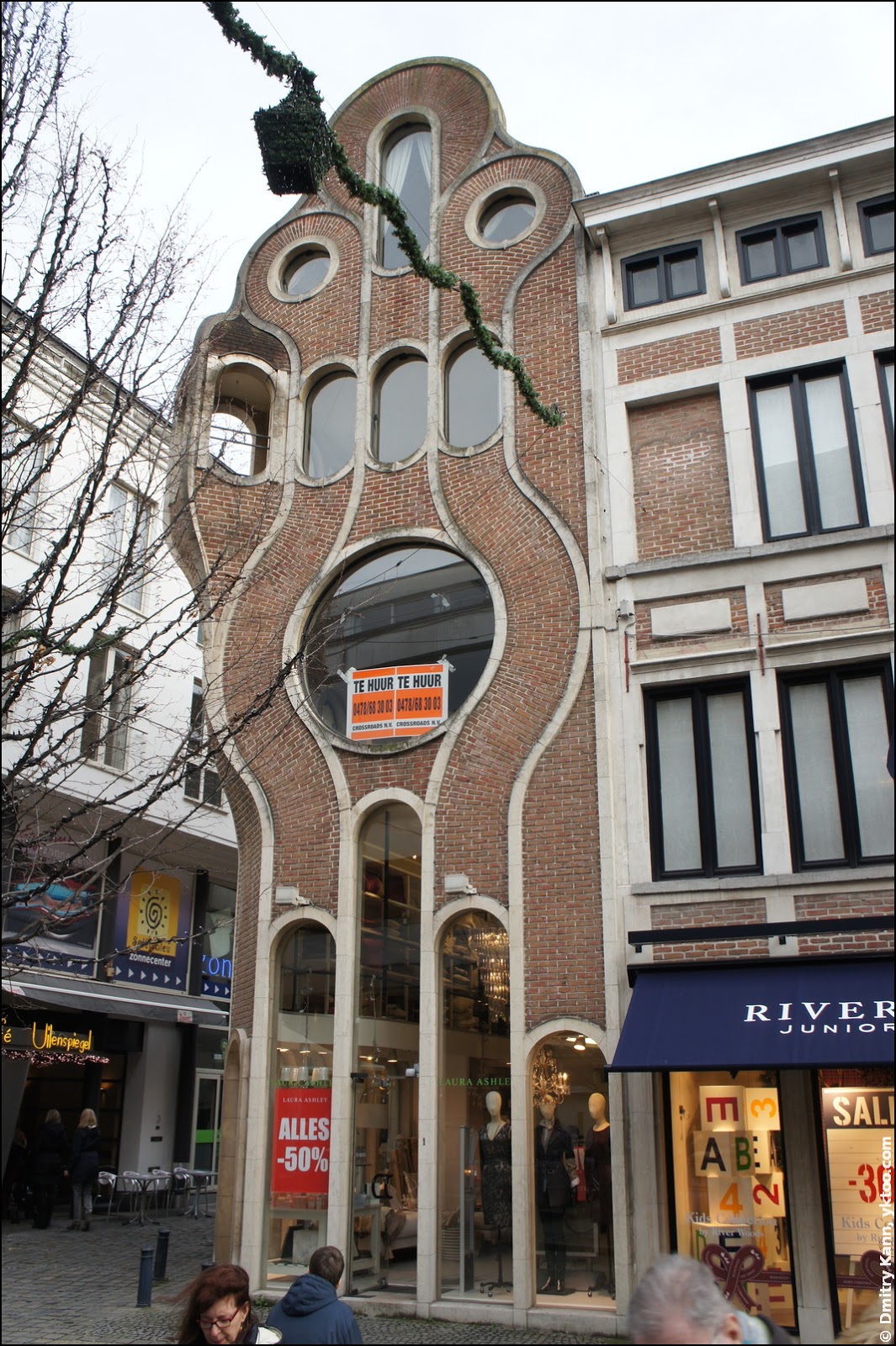
These design white bears can be seen at many places in the city:
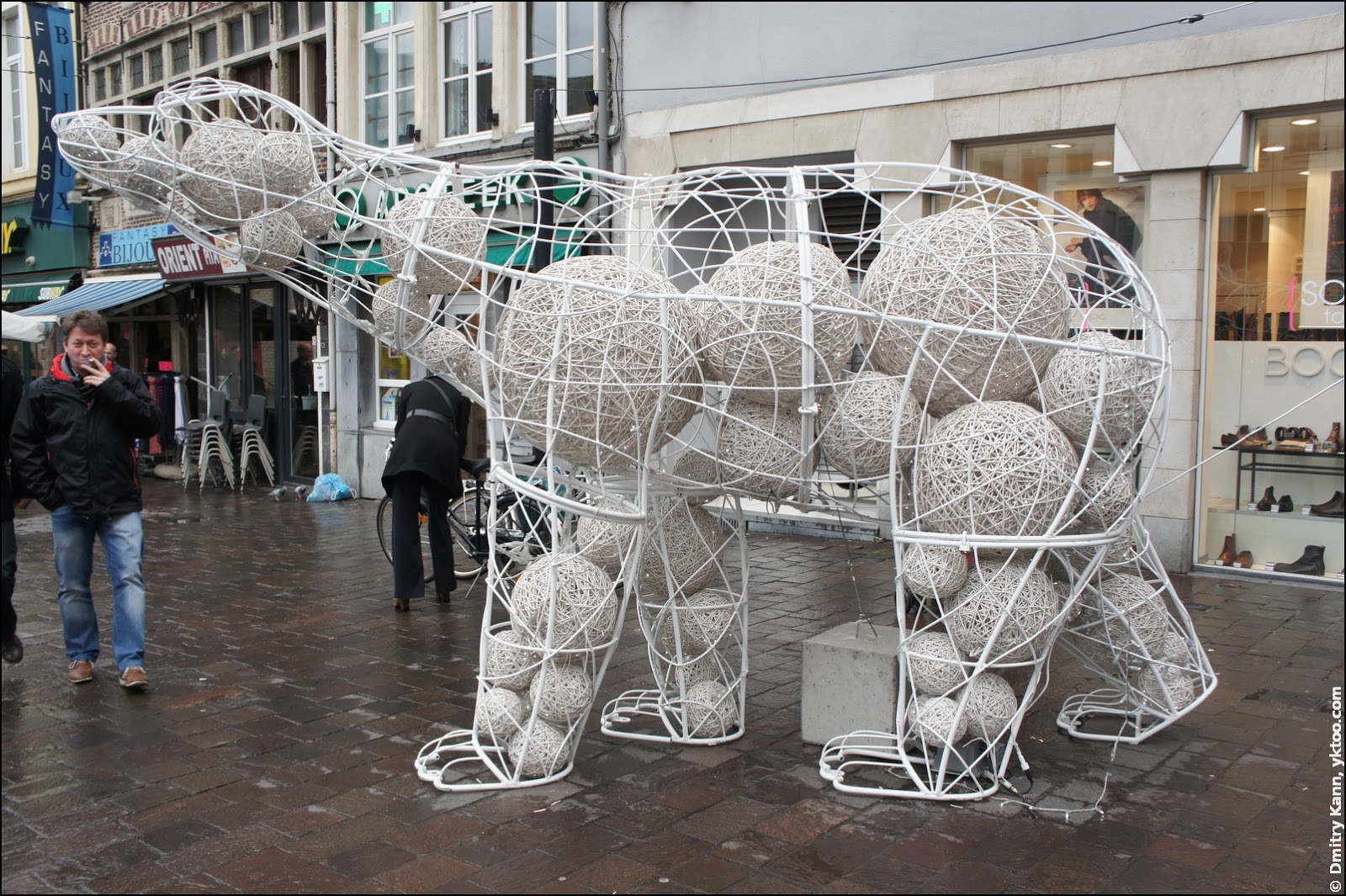
The Vrijdagmarkt (Friday Market) is the residence of the statue of Jacob van Artevelde, a Flemish statesman.

The pedestal is nicely decorated with elaborate colourful signs:

And this is, according to our city-guide, “the most beautiful tree in the city”. I have to admit it looks all not so impressive in the winter. Have to check back in the summer.

In the next part we will see Ghent by night. ■
 — world’s fastest URL shortener
— world’s fastest URL shortener
Comments